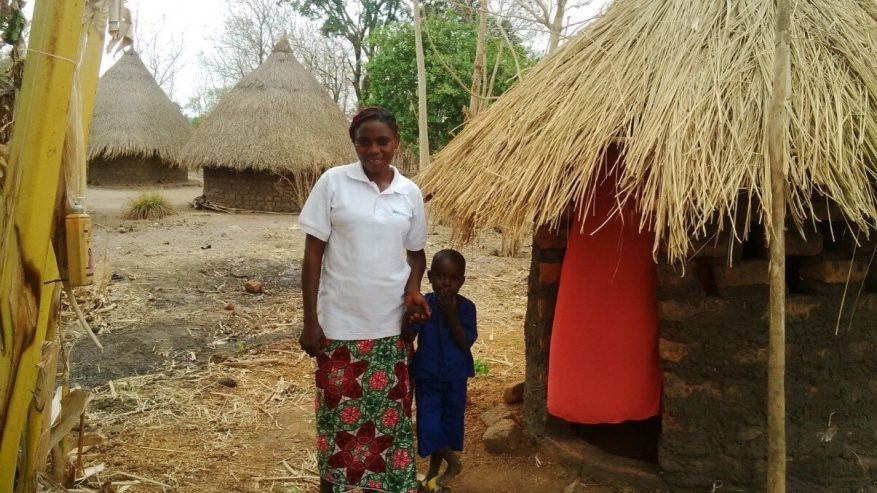All forms of building, including constructing latrines, are seen as men’s work, in Tiv land, Nigeria. We meet one woman who’s challenged the norm, taking action to improve sanitation in Nigeria for her family’s future and inspiring others to follow her lead.
Farmer Ngoundu lives in Benue State, in North Central Nigeria, with her eight children. After our RUSHPIN Programme was rolled out in Onmbagyula to improve sanitation in Nigeria, her whole community were involved in collective action to put an end to open defecation. However, Nogundu found it difficult to acquire a latrine for herself and family because, by tradition, building was considered ‘men’s work’, and as a widow she had no husband to construct a toilet for her.
The fact that her children continued to use the surrounding area caused her great embarrassment and brought constant conflict with her neighbours. When her six-year-old was seriously injured on a piece of broken glass during a night visit to the bush area beyond their home, she resolved to break with tradition and build her own latrine.
She dug the pit herself, used mud and thatch to construct the walls and roof, then cleared the surrounding area to ensure no one else would get wounded by dangerous objects on the way to the toilet. She had a real sense of achievement when the family finally had a decent, private and safe place to answer the call of nature.
Ngoundu no longer quarrels with her neighbours. She’s also inspired other local women to take up latrine construction themselves. Now, Ngoundu is a member of the community’s Water, Sanitation & Hygiene Committee (WASHCOM) , and acts a voice for other widows and older women who lack support to build their own latrines.
“Before (the programme), I used to work hard on my farm and do nothing about my sanitation,” she said. “My compound was always a mess because I thought farming was more important than keeping my house clean. This programme has encouraged me to take better care of my surroundings.”
Since our meeting, the community, and the entire Gwer-East Local Government Area, have gained Open Defecation Free status.

